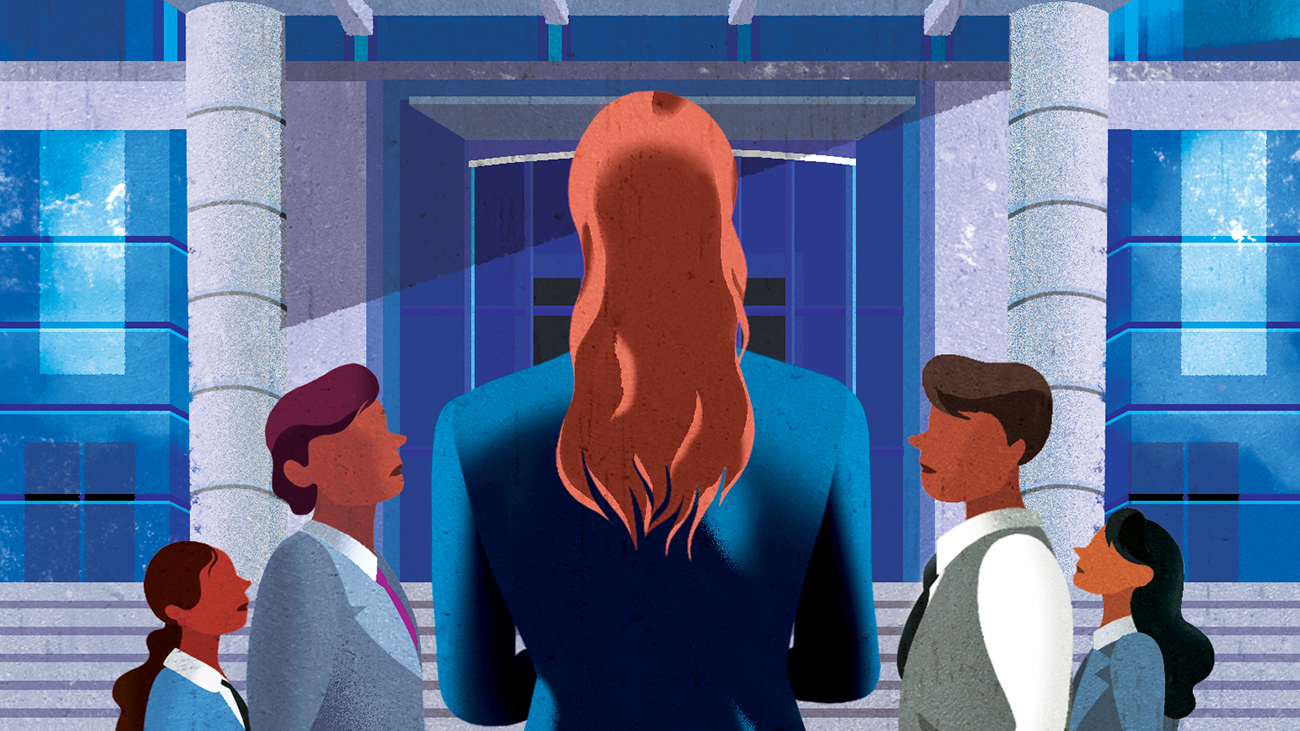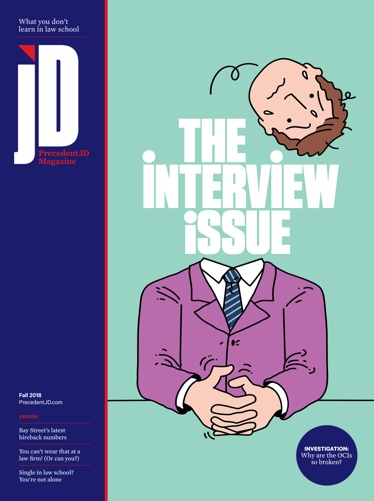
It’s almost a cliché to point out that discrimination is a daily reality throughout the legal profession. After all, the anecdotes are everywhere — of a male partner commenting on a female associate’s body or a lawyer telling a joke with a racist punchline. But anecdotes paint an incomplete picture. How pervasive is this problem in the legal world?
The hard data is starting to pile up. Let’s begin with Exhibit A. In 2017, the Law Society of Ontario reported that one in five of the province’s articling students had received unwelcome comments on the basis of their identity — which could include, among other things, gender, sexual orientation or race.
Now for the next piece of evidence. A 2014 survey of more than 1,000 second-year lawyers across Canada, published by the University of Toronto, found that, in firms with more than 250 lawyers, 83 percent of white respondents said they were satisfied with their decision to enter the profession. But that number fell to 71 percent when the lawyers were South and Southeast Asian, 50 percent when they were Asian and 33 percent when they were black.
Together, these two studies reveal a grim reality. When students from marginalized communities graduate from law school and enter the legal profession, there is a good chance they will experience some form of discrimination on the job.
To see this future looming on the horizon is difficult. “It’s stressful to know that a lot of racialized students won’t be treated the same as everyone else,” says Reakash Walters, a second-year law student at the University of Ottawa, who is black. “It’s very unfair to think that you might not have the same opportunities as your peers just because of your identity, because of who you are.”
So what can the profession do to make things better? To start, students need to feel like they can come forward if someone has made a discriminatory comment. “In the articling system, there is such a power imbalance between the students and the lawyers,” says Nima Hojjati, an articling student at a civil-litigation firm in Toronto and a vice-chair of the law students section of the Canadian Bar Association. “Whenever people experience harassment, they rarely do anything about it.” That’s because, if they did come forward, they would be putting their employment on the line. And that’s a lot to ask.
The Law Society of Ontario, for its part, is aware of this problem. For the past two decades, it has operated a program called the Discrimination and Harassment Counsel — a free phone line that “confidentially assists anyone who may have experienced discrimination or harassment by a lawyer.” Callers don’t have to file an official complaint. This is a safe way for students to obtain free legal guidance from a lawyer who can walk them through their options. But there’s a problem: according to the Law Society’s report on the articling system, only eight percent of students know the program exists. “More awareness of this program would be very positive,” says Hojjati. “But access to advice is only a first step.”
 Attention Ontario law students:
Attention Ontario law students:
If you experience discrimination or harassment at work, you can contact the Law Society’s Discrimination and Harassment Counsel for advice and support. The program has lawyers on-call at 1-877-790-2200.

This story is from the 2018 edition of PrecedentJD Magazine
Illustration by Jenn Liv
